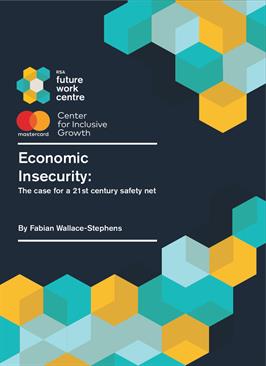This paper aims to deepen understanding of how economic insecurity is experienced by workers, including those in non-standard employment arrangements such as zero-hours contracts.
Employment in the UK recently reached a record high of 32.75 million. Despite this fact, there is growing evidence that British workers are economically insecure.
The economic security challenge is much broader than zero-hours contracts or gig economy jobs. It impacts a wide range of people, including middle-income workers experiencing financial strain, indebtedness, or the risk that their job may become obsolete in the future because of new technologies.
To understand how economic insecurity is experienced by workers we commissioned a survey, in partnership with Populus, building on a similar survey we ran two years ago. Our findings suggest that economic insecurity is increasingly widespread:
- Workers increasingly feel that their income from work does not provide them with enough to maintain a decent standard of living (30 percent, up from 26 percent in 2017).
- Workers increasingly experience problems with income volatility (24 percent, up from 19 percent).
- Many workers, including those in steady jobs, lack the resources needed to protect themselves against financial shocks. 36 percent would struggle to pay an unexpected bill of £100; 59 percent would struggle to pay an unexpected bill of £500.
We conclude by taking a view on what policy and practice reforms will be needed to develop a new social contract that can tackle rising economic insecurity.
Download Economic Insecurity: The case for a 21st century safety net (1MB, PDF)
pdf 814.5 KB
Contributors

